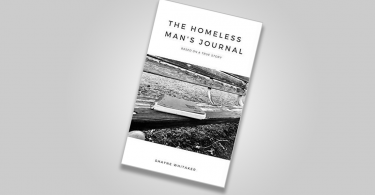Naturally, this will contain spoilers; so if you see the title of a book you’d like to read simply don’t continue with the article.
Harry Potter and the Deathly Hallows
To start off with the potentially dangerous, I begin with Harry Potter and the ending epilogue of book seven: Harry Potter and The Deathly Hallows. Did anyone actually enjoy it? Who wanted to see our young, exciting heroes become boring, middle-aged, married people…we wanted to see them fighting villains, being magical, being badass…most of all we wanted the freedom to imagine what they did next.
We didn’t need it spelled out. I realise, of course, that fans would never have entirely agreed on how they wanted their heroes to say goodbye. Personally I didn’t care for Ginny; she seemed a bit desperate to me. Others loved her. Therefore the best decision that JK could have made would have been to leave off just after the final battle finished – that way, we fans could have imagined whatever ending we liked.
The Painted Veil
One of my favourite novels is W. Somerset Maugham’s The Painted Veil. The film with Naomi Watts is fine, but it skips out the best part of the novel: the ending. Basically (and I’m cutting out the complicated plot, the inner-workings of a troubled marriage, post-colonial break-ups and Maugham’s beautiful language), the heroine Kitty is a bit of bitch.
She has reasons to be so, but still, she’s hard work, at least at the start. She treats her sweet and well meaning, if quiet, husband very poorly. By the end of the novel, said wet husband is dead, her useless lover has abandoned her, and now Kitty is pregnant. She goes back to her home in England, and her horrible family. Her closing speech to her father is an eloquent coming of age monologue about finely honed maturity and grace. Kitty has finally grown up. It is one of the most progressive speeches about what it means to be female, what it means to recognise your mistakes, and yet to be hopeful about the future. It’s one of the best bildungsroman moments in this beautiful novel.
Winnie the Pooh
Another classic with a brilliant ending is of course AA Milne’s Winnie the Pooh. This touching and heartfelt tribute to youth and growing up is aimed primarily at the young, but really works for everyone. Its final parting goodbye when Christopher Robin leaves will bring the hardest hearted to tears.
The Secret History
One of the greatest novels of the last twenty-five years of so is Donna Tartt’s The Secret History. It’s an amazing labyrinth of a novel, dealing with Greek myths, Ivy League colleges, psychopathic students and a myriad of love triangles. Tartt skilfully depicts her unpleasant narrator in an engaging light, whilst building the tension leading to a murder we already know is coming.
However there is the epilogue, where every page or so you hope Tartt will find a resolution, but finally realise there just isn’t one. The story slows and then stops dead after a quasi-suicide and never really picks up again, yet the pages keep coming. The romance never really amounts to anything, to the point where you wonder why Tartt included it. Once I reached the end of the story, I concluded that this brilliant novel’s beginning half sadly isn’t matched by its ending.
Great Expectations and Perfume
Famously, Charles Dickens’s Great Expectations‘ initial ending, in which Estella and Pip didn’t get together, got so many complaints that the author had to change it. Several people also complained about the ending of the popular novel, Perfume, where the serial killer gets away with his murder spree because of his skill with scents.
Bond and Holmes
Likewise, Ian Fleming and Conan-Doyle both attempted to kill off their famous creations; sadly fans weren’t having any of it, and each writer had to write much more against their wishes. Their inventions for how and why Holmes and Bond managed to stay alive become more miraculous and sometimes absurd. Although Hound of The Baskervilles was written after this point, so maybe fans had a point.
A Thousand Splendid Suns
A Thousand Splendid Suns by Khaled Hosseini is a great recent novel, with a moving and touching storyline in which two women end up married to the same abusive husband. It also depicts Afghanistan, a country devastated by religious extremism, misogyny and an unsupportive invading force in. The tragic ending, where the abusive husband is murdered and Miriam must face execution, is interspersed with Laila finding out she is pregnant by her true love. This knowledge softens the harshness of Miriam’s sacrifice and Laila’s hope for a girl, so she can name her daughter after the bravest woman she knew, is very touching and makes this novel’s ending one of the best.
There isn’t a hard and fast rule when it comes to endings; people clearly want resolution and yet sometimes, as Rowling discovered, if you tie it too hard there just isn’t space for the readers to draw and imagine their own conclusions.
Lauren Wise tells us about her favourite book beginnings here. What would you add? Have your say in the comments section below.








